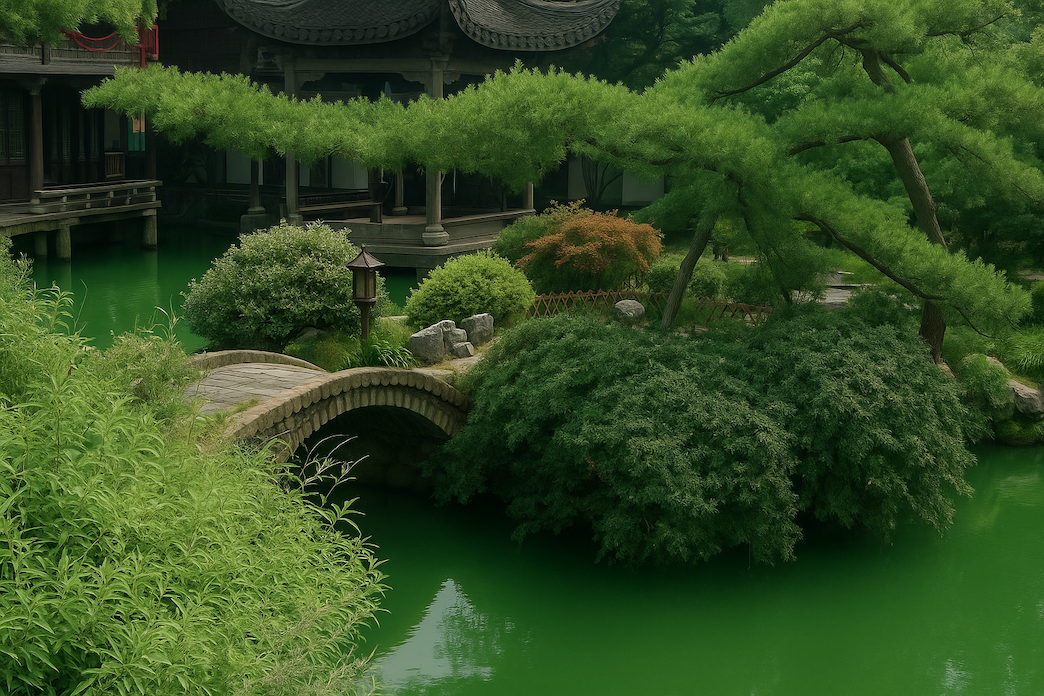
What Is Zen? Discover the Essence — And How to Experience It in China
Have you ever asked: “What is Zen, really?” Is it just meditation? Minimalism? A trendy buzzword from the East? Or is it something deeper — a feeling, a state of being, a way of life?
In our hyper-digital, always-on world, it’s no surprise that more people are turning to Zen in search of peace. But what is Zen? And more importantly — can you really feel it in modern life?
Let’s explore what Zen truly means — and how you can experience it for yourself through a rejuvenating retreat in the serene heartlands of China.
What Is Zen? A Return to Your True Nature
The word “Zen” traces its roots to the Sanskrit term Dhyāna, meaning meditation. It traveled through China (as “Chan”), Korea (“Seon”), and eventually to Japan as “Zen” — gaining cultural nuance in each land. But at its core, Zen is not a religion, a dogma, or a discipline. It’s a way of experiencing life directly, without filters.
As Zen scholar Alan Watts once said, “Zen does not confuse spirituality with thinking about God while one is peeling potatoes. Zen spirituality is just to peel the potatoes.”
Zen is about presence. About peeling away distractions — not to escape the world, but to return to your original self, the part of you untouched by fear, ego, or performance.

Why Zen Starts with the Breath
One of the most common starting points in Zen practice is breathing. Why?
Because breath is the bridge between the body and mind. In Chinese and Indian traditions, breath is also life energy — Qi or Prana — the vital flow that sustains not just physical but emotional and spiritual well-being.
Modern science agrees: slow, mindful breathing (around 6 breaths per minute) regulates your nervous system, improves emotional resilience, and even enhances decision-making by calming the amygdala and activating the prefrontal cortex — your “wise mind.”
So when you sit and breathe in silence, you’re not “doing nothing.” You’re rewiring your being.
Zen as a Way of Living, Not Escaping
Many people imagine Zen as sitting cross-legged in robes under a tree. But Zen is not about exotic scenery or silence for silence’s sake — it’s about being awake to life, as it is.
Take France’s Plum Village, founded by Vietnamese Zen master Thich Nhat Hanh. There, Zen isn’t just in meditation — it’s in gardening, walking, eating, even doing the dishes. When the temple bell rings, everyone pauses — a moment to return to stillness.
This is what Thich Nhat Hanh called “engaged mindfulness.” And it’s not limited to monasteries.
Zen can be practiced in your morning coffee, in your evening walk — and especially in the intentional space of a retreat.

How to Feel Zen on a Retreat in China
What if you could step away from the world — not to disconnect, but to reconnect with yourself?
That’s exactly what Puyu Retreat offers: a new generation of curated Zen retreats in China. Founded by a team of women passionate about healing, Puyu blends ancient wisdom with nature, sustainability, and cultural depth.
Picture this:
-
🌿 Breathing deeply in a misty bamboo forest at sunrise
-
🍵 Sharing tea with a local healer, learning about the Five Elements
-
🧘 Practicing gentle movement therapies like qigong by a mineral-rich spring
-
🧡 Sitting in stillness as you journal your way back to balance
Each Puyu retreat is a carefully curated journey — not a tourist package, but a soulful pause. It’s designed for thinkers, seekers, creatives, and professionals who want more than a vacation. You want a reset.
The Path Back to Stillness Begins Within
Whether you’re new to Zen or already walking your spiritual path, China offers something rare: a deep well of ancient wisdom, still alive in its mountains, its breathwork traditions, its people.
Zen isn’t a destination — but China might just be the place where you truly feel it.
Want to learn more?
We’re currently building out transformative retreat experiences across China’s most peaceful landscapes. 👉 Subscribe to the Puyu Retreat newsletter and let your journey inward begin.


